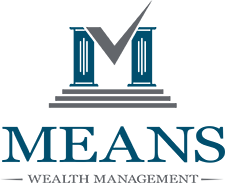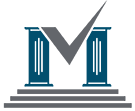Starting the New Year with a Focus on Financial Fitness
Every year, millions of people ring in the New Year by making resolutions and establishing goals. You know the common ones: exercise more, eat less junk food, spend more time with family, learn a new skill, and so on. Setting your goals and ensuring your daily habits align with those goals is incredibly important, and there is no better time than the start of a new year to make this a focus. To quote James Clear, author of Atomic Habits: An Easy & Proven Way to Build Good Habits & Break Bad Ones:
Your outcomes are a lagging measure of your habits. Your net worth is a lagging measure of your financial habits. Your weight is a lagging measure of your eating habits. Your knowledge is a lagging measure of your learning habits. Your clutter is a lagging measure of your cleaning habits. You get what you repeat.
As you set your goals and think about your habits for 2022, we encourage you to keep financial fitness at the top of your list. Here are some things to consider:
- Consider increasing your retirement plan contributions. The IRS has increased various 2022 retirement plan contribution limits, including increasing the limit for 401(k)s, 403(b)s, most 457 plans, and the federal government’s Thrift Savings Plan to $20,500 for those under age 50 and $27,000 for those age 50 or over. If you have been contributing the maximum amount to your retirement plan account, please be sure to update your contributions to reflect the increased threshold. If you are not currently contributing the maximum amount, we recommend you consider increasing your retirement savings. Even a 1% change can make a significant impact.
- If you will be 50 or older by the end of 2022, ensure you are maximizing your ability to make catch-up contributions. Annual catch-up contributions are allowed in many retirement savings vehicles, including 401(k)s, 403(b)s, and IRAs. Click here to learn more.
- Make your annual IRA contributions a priority. If you are eligible to make an IRA contribution, we recommend doing so as early as possible in the year. The IRS sets forth annual contribution limits; for 2021 and 2022, total contributions to your Traditional and Roth IRAs combined cannot exceed $6,000 for those under age 50 or $7,000 for those age 50 or older. If you haven’t made your 2021 IRA contribution, there is still time; the deadline for making your 2021 IRA contribution is April 15, 2022. There are some key considerations to keep in mind when making an IRA contribution, click here to learn more.
- Ensure your estate planning is adequate and up-to-date. If you have not taken the time to establish a last will and testament, financial power(s) of attorney and advanced health care directive(s), make 2022 the year that you commit to tackling the task. If you do have these basic estate planning components in place, we encourage you to take a few moments to review the documents and ensure they are relevant and up to date. Estate planning needs will vary by person, so be sure to work with your attorney to make certain you have the appropriate vehicles in place to ensure your final wishes will be honored.
- Review your beneficiaries. A few months ago, we recommended you take the time to review the beneficiary designations for each of your accounts (life insurance policies, retirement accounts, etc.) prior to year-end. If you have not done so recently, we recommend you take the time to do so now. Beneficiary designations may overrule any plans you have formalized via your will, which is why it’s incredibly important to ensure your beneficiary designations are accurate and up to date.
- Check your credit reports and ensure you have locked your credit. Credit reports are provided by Equifax, Experian and TransUnion. Each bureau generates its own credit report and score based on your credit history, which is why it is important to review all three at least annually. If you have not already done so, we also recommend you place a credit freeze to help prevent unauthorized access to your credit file. Check out pages 22-25 of our 2020/2021 Perspectives Booklet for more information.
- Create or update your budget. When establishing or reviewing your budget, we encourage you to use the 50/15/5 saving and spending rule of thumb. Using this principal, we recommend you allocate no more than 50% of your take-home pay to essential living expenses (food, housing, health care, childcare, debt payments, etc.). We then recommend you try to save 15% of pretax income for retirement and that you set aside 5% of your take-home pay for short-term savings for unexpected expenses. Once your budget is established, ensure your spending is on track. You may consider using a budget app to help monitor your spending.
- Focus on paying off high-interest rate debt. We highly recommend you make a point to pay off your entire credit card balance each month to avoid paying interest. However, if you are unable to do this and/or are carrying some old credit card debt, we recommend you implement a strategy to reduce or eliminate that debt. There are various strategies to consider, such as paying off the credit card with the highest rate first. Another strategy to consider – pay off your smallest debt first, then add that debt’s minimum monthly payment to your next smallest debt, and so on until you have paid off all of your debt. Finally, given the current low interest rate environment, it may be worthwhile to refinance outstanding debt.
- Pull your tax documents together early. Instead of waiting until April to start gathering your tax documents, make an effort to collect everything early. Your accountant will thank you! You may be wondering when you will receive tax documents for your investment accounts managed by Means Wealth. We are still waiting for timeline information from our custodians, and will be sure to pass that information along when it is available.
As we all know, too often people find themselves abandoning their goals and resolutions early in the year. Our passion is to encourage financial fitness for everyone, which is why we are here to help. If you need any help working through any of the above items, or any other component of your financial plan, please do not hesitate to reach out.
Your actions reveal how badly you want something. If you keep saying something is a priority but you never act on it, then you don’t really want it. It’s time to have an honest conversation with yourself. Your actions reveal your true motivations.
― James Clear
As always, thank you for reading and please contact us if you have any questions.


